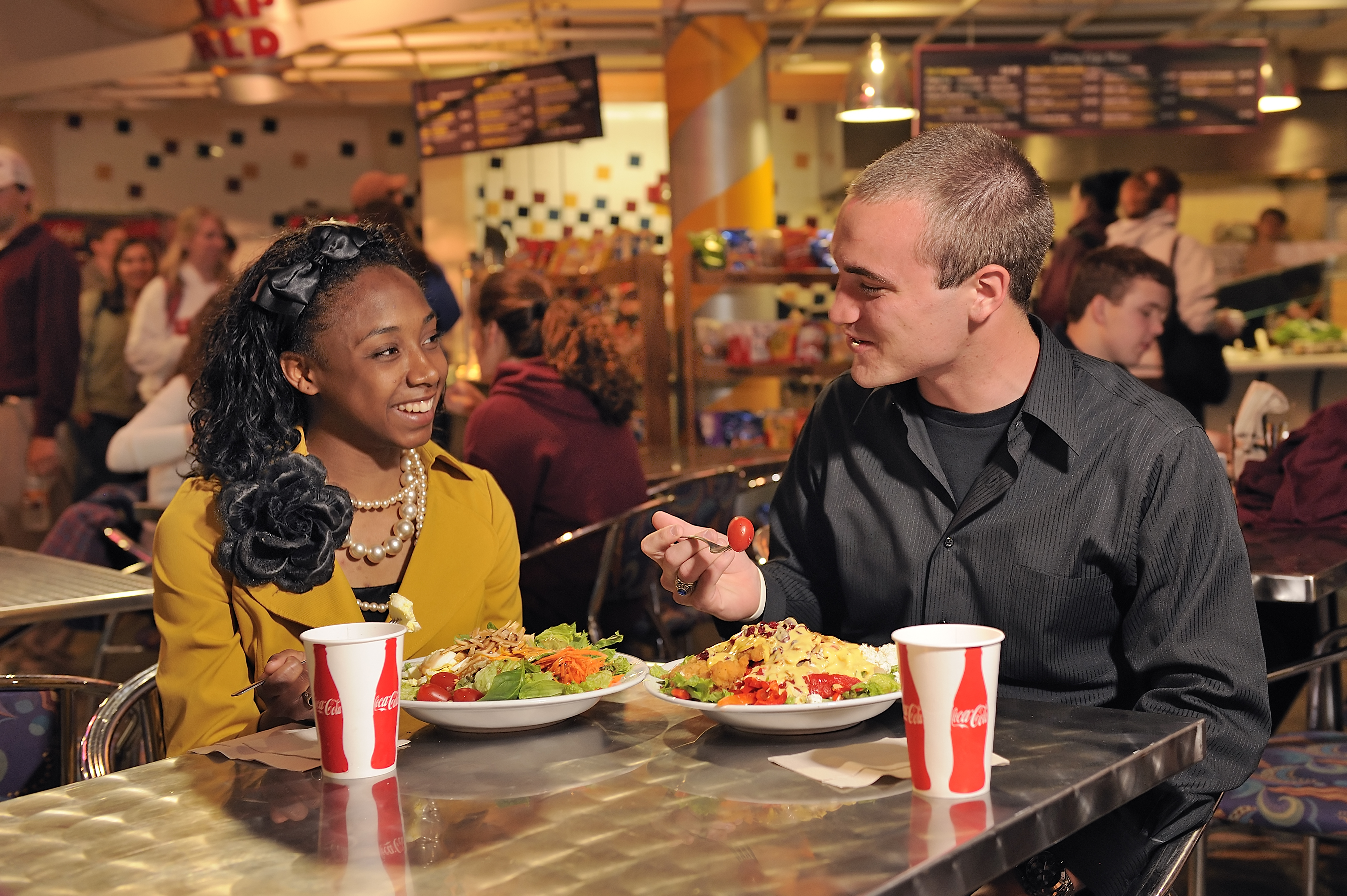Dining Services increases sustainability efforts

Virginia Tech Dining Services has joined the 1 million club.
In 2012, Dining Services collected and diverted more than 548 tons of compostable waste from the regional landfill – that’s more than 1 million pounds of material composted in just one year.
“We’ve increased composting by roughly 100 tons per year since 2010,” said Rial Tombes, sustainability coordinator for Dining Services. “Since 2009, we’ve diverted close to 1,500 tons of compost from the landfill.”
The increase in composted material is due in large part to Dining Services maintaining waste sorting stations in all dining centers. Dining Services has also organized efforts to encourage customers to use the composting bins.
Waste stations, located in Turner Place, Deet’s Place, Hokie Grill, and Squires Student Center, now have clearly labeled bins for compostables, recyclables, and landfill waste.
“This program is really innovative because it is asking students to do the sorting,” said Tombes. “It’s a constant reiterative process of tweaking signage to make it as engaging and eye-catching as possible, while also training all the folks involved, from Dining Services personnel to faculty and staff to Virginia Tech students to campus guests.”
Tombes says she believes more people will compost if they know what can be reused versus what must be disposed of. New initiatives include student-created marketing campaigns and a phone app with information on waste sorting. Through the Farms and Fields blog, Tombes takes student input into consideration for sustainability planning.
Tombes, a recent graduate of Virginia Tech’s College of Architecture and Urban Studies, majored in environmental policy and planning with a minor in civic agriculture and food systems. She was drawn to the field of sustainable dining while in college. Her courses presented environmental issues that seemed far too big for one person to make a difference with – until it came to food.
“I realized I could make choices about food every day that would help the environment,” she said. “Whether it’s choosing to eat local foods, composting, recycling, or planting foods in a community garden, those are small but important choices that can really make a difference.” Tombes also knows that when you can get a large group of people, such as a university, on board with such initiatives, the impact can be quite staggering – as the composting figures indicate.
Another sustainability effort is the Dining Services Garden at Kentland Farm. It has also expanded each year, growing from 0.25 acres in 2009 to 3.25 acres in 2012. Tombes hopes to see more campus gardens and get more students interested in the planting and harvesting process. “If departments, farm managers, students, and chefs work together, campus dining centers can efficiently source even more foods that are not only local, but also grown right on campus land,” she said.
Dedicated to its motto, Ut Prosim (That I May Serve), Virginia Tech takes a hands-on, engaging approach to education, preparing scholars to be leaders in their fields and communities. As the commonwealth’s most comprehensive university and its leading research institution, Virginia Tech offers 240 undergraduate and graduate degree programs to more than 31,000 students and manages a research portfolio of $513 million. The university fulfills its land-grant mission of transforming knowledge to practice through technological leadership and by fueling economic growth and job creation locally, regionally, and across Virginia.







